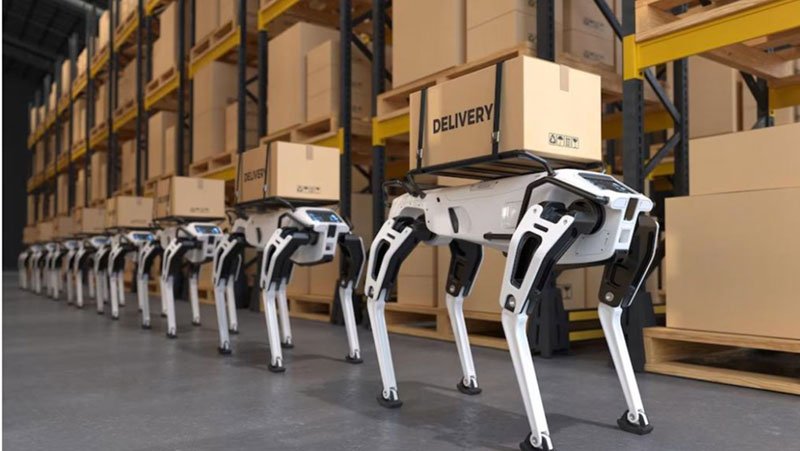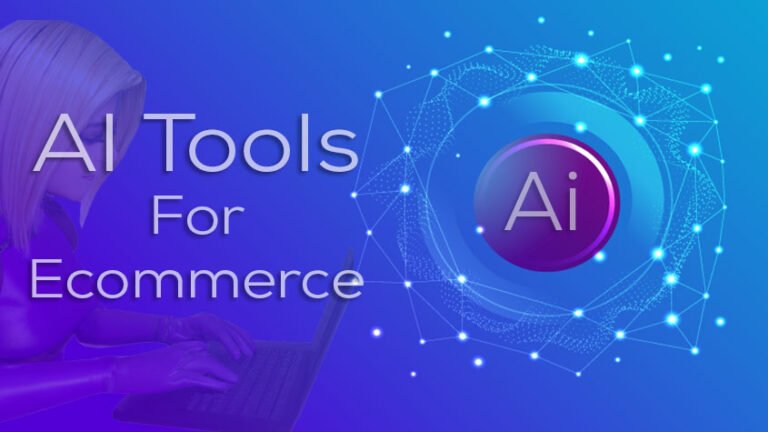The Future of AI in Online Retail: The Top 5 Ways AI Will Transform E-commerce
The future of AI in online retail and e-commerce is a topic many people are interested in. Artificial intelligence (AI) is rapidly evolving and changing how businesses operate. It can transform the retail industry from supply chain management to customer service.
In this article, we will discuss the benefits and challenges of AI in online retail and e-commerce and how businesses can overcome these challenges to reap the benefits of AI.
What is AI?
AI refers to the ability of a machine or computer to perform tasks that normally require human intelligence, such as learning, recognizing patterns, and making decisions. AI systems can be trained to perform various simple and complex tasks.
As AI technology continues to evolve, its potential uses in the retail industry are practically limitless.
What is the Future of AI in Online Retail and E-commerce?
The future of AI in online retail and e-commerce looks very promising. According to a study by Gartner, by 2021, AI will handle 15% of all customer service interactions completely.
Similarly, Juniper Research predicts that global retailers will spend $7.3 billion annually on AI by 2022. This investment will pay off through increased sales, reduced costs, and improved customer experiences.

Benefits of AI in online retail and e-commerce
Increased Sales
AI can help retailers increase sales by providing personalized recommendations to customers. By analyzing a customer’s browsing and purchase history, AI systems can suggest products they are likely interested in.
This personalization helps build trust and loyalty with customers, increasing the likelihood of repeat purchases.
Reduced Costs
Another benefit of AI in online retail and e-commerce is reduced costs.
AI can automate many tasks traditionally performed by humans, such as product categorization and order fulfillment. This automation reduces labor costs and increases efficiency, increasing retailer profitability.
Improved Customer Experience
AI can also help retailers provide a better customer experience. For example, chatbots can answer customer questions and provide support 24/7. This type of instant support is increasingly important in a world where customers expect immediate responses to their inquiries.
Increased Efficiency
Finally, AI can increase efficiency in online retail and e-commerce. By automating repetitive tasks, AI frees human workers to focus on more complex and value-added activities.
This increased efficiency can help retailers to process orders faster, reducing the time between order placement and delivery.

Challenges of AI in Online Retail and E-commerce
While there are many benefits to using AI in online retail and e-commerce, there are also some challenges that businesses need to be aware of. These challenges include:
Data Privacy
One major concern with AI in online retail and e-commerce is data privacy. As AI systems collect more and more customer data, there is a risk that this data could be compromised or misused.
Businesses need to be transparent about collecting and using customer data and ensure that they have strong data security protocols in place.
Bias
Another challenge with AI in online retail and e-commerce is information bias. AI systems are only as unbiased as the data they are trained on. If the data used to train an AI system is biased, then the system’s results will also be biased. Companies must ensure that their data sets are diverse and represent their customer base.
Job Displacement
There is a concern that AI could lead to job displacement in the retail industry. As AI systems automate more tasks, there is a risk that human workers could be replaced by machines. A way must be found to retrain and upskill their workers to prepare them for the changing nature of work in the AI era.
How to Overcome the Challenges of AI in Online Retail and E-commerce
While the challenges of AI in online retail and e-commerce are significant, there are ways that businesses can overcome them. These include:
Use Ethical AI
AI systems can become a concern when designed without regulation and accountability. Corporations should ensure their AI systems are ethical by implementing clear standards for data privacy, bias, and transparency. This means that businesses take responsibility for ensuring that the data analyzed by their AI systems do not violate any privacy or confidentiality rules.
It also means ensuring the AI system does not discriminate or perpetuate biases towards certain groups or individuals. Consequently, transparency is crucial, so businesses are open about how their AI systems work and the types of data they use.

Use Unbiased Data
The data used for AI must also be unbiased to avoid the problem of biased algorithms. For instance, if an AI system works on data that only reflects a small proportion of the customer base, the system may become biased toward this group.
Firms need to work to gather data from multiple sources, including different geographical areas and demographic groups. Additionally, regular data reviews must be conducted to ensure it remains up-to-date.
Furthermore, using diverse data reduces the risk of biased algorithms and improves the quality of results. A diverse dataset leads to broader insights and a more accurate understanding of the customer base.
Therefore, businesses should go beyond their traditional data sources, collect data from multiple sources and channels, and use that data in their AI systems to develop a more comprehensive and diverse analysis of the customers. The AI systems then use this information to make better-informed predictions and, in turn, better product recommendations and more personalized content.
Create New Jobs
Rather than replacing human workers with machines, businesses can find ways to retrain and upskill their workers to prepare them for the changing nature of work in the AI era.

Conclusion
The future of AI in online retail and e-commerce is bright. AI has the potential to help businesses improve their sales, reduce costs, improve customer experience, and increase efficiency.
However, there are some challenges that businesses need to overcome, such as data privacy, bias, and job displacement. By using ethical AI, unbiased data, and creating new jobs, businesses can overcome these challenges and reap the benefits of AI.
The key to success in the AI era will be for businesses to embrace change and innovation and to find ways to work collaboratively with their employees and customers to build a better and more prosperous future.
FAQs
What is the difference between AI and machine learning?
Machine learning is a subset of AI that allows computers to learn without being explicitly programmed. AI is a broader term that encompasses all of the different ways that computers can be made to learn.
How does AI work in online retail and e-commerce?
AI is used in online retail and e-commerce in a variety of ways, including:
– Product recommendations
– Fraud detection
– Personalization
– Chatbots
What are the benefits of using AI in online retail and e-commerce?
There are many benefits of using AI in online retail and e-commerce, including:
– Increased sales
– Reduced costs
– Improved customer experience
– Increased efficiency
What are the challenges of using AI in online retail and e-commerce?
There are some challenges that businesses need to overcome when using AI in online retail and e-commerce, including:
– Data privacy
– Bias
– Job displacement
How can businesses overcome the challenges of using AI in online retail and e-commerce?
Businesses can overcome the challenges of using AI in online retail and e-commerce by:
– Using ethical AI
– Using unbiased data
– Creating new jobs



